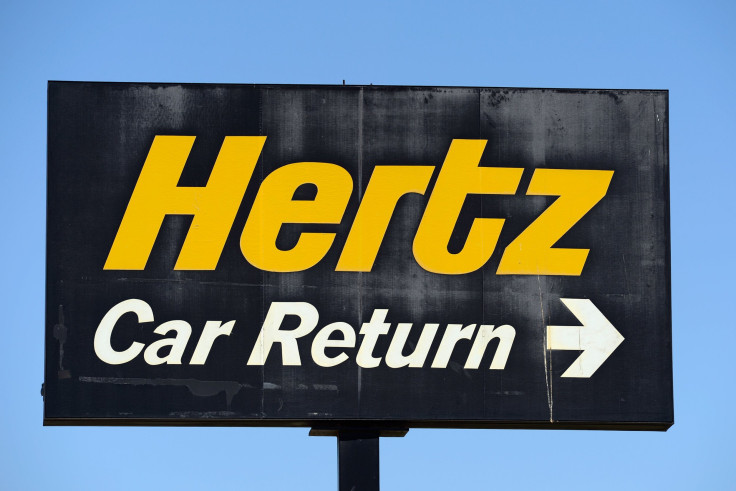Coronavirus Economy: Auto Rental Firms Skidding, Hertz May Have To Consider Bankruptcy

KEY POINTS
- Hertz’s biggest stockholder is billionaire investor Carl Icahn
- Hertz has laid off 10,000 workers in North America to cut costs
- Hertz, Avis and Enterprise control 94% of the U.S. car rental market
Auto rental giant Hertz Global Holdings (HTZ) may have to consider filing for bankruptcy after it failed to make operating lease payments in an effort to save cash during the coronavirus pandemic.
Hertz uses its operating lease to lease vehicles for its rental auto fleet.
Hertz and its advisers are currently negotiating with its senior lenders and certain holders of its vehicle finance subsidiary's notes in order to temporarily reduce payments. Hertz has also entered into talks with its lenders on a forbearance agreement to waive a default and to potentially avoid bankruptcy.
However, if enough creditors refuse to waive any default by the end of the May 4 grace period, "Hertz could be materially and negatively impacted," the company said in a regulatory filing.
Hertz and some of its creditors have also hired restructuring advisers.
“It’s not surprising senior lenders are balking,” said Joel Levington, a Bloomberg Intelligence credit analyst. “To give up a superior structure position for [an] uncertain future in a diluted position is asking a lot in this environment.”
Hertz reported some $17 billion worth of debt, including $3.7 billion of corporate bonds and loans and $13.4 billion of vehicle-backed notes.
Hertz’s biggest stockholder is billionaire investor Carl Icahn.
As the coronavirus pandemic shut down much of auto travel demand, Hertz has laid off 10,000 workers in North America to cut costs and asked for federal assistance. However, there has yet been no sign the government will help the car rental industry.
Levington also noted that Hertz’s regulatory filing “suggests it is struggling to obtain all necessary amendments and waivers to reduce its required payments. Should it achieve that, we think raters may view the changes in terms as tantamount to a selective default, and without the change, the potential for a corporate restructuring is possible.”
But Chief Executive Officer Kathryn Marinello said Hertz is doing whatever it can to obtain leniency from its lenders to avoid a bankruptcy filing.
“We are seeking the support of our lenders and banks,” said Marinello. “We are also seeking the support of the government. Yes, we can avoid bankruptcy.”
Hertz had about 38,000 employees as of Dec. 31, 2019, including 29,000 in its U.S. operations.
“Like the rest of the global travel sector, COVID-19’s impact on Hertz arrived swiftly, and the reversal in customer demand has been significant,” Marinello said in March.
Hertz’s major rivals Avis Budget Group (CAR) and Enterprise Holding are facing similar problems.
Hertz, Avis and Enterprise – and their nine combined brands – control 94% of the U.S. car rental market.
Avis, citing huge 80% drop in April revenue, is now planning to cut costs by $2 billion this year. As part of that program, Avis will reduce compensation for executives and senior employees, temporarily stop capital spending and cease the expansion of its vehicle fleet.
For the first quarter of 2020, Avis expects to report a net loss of between $155 and $165 million on total revenue of between $1.7 to $1.8 billion, a 9% decrease at the midpoint from the year-ago quarter
"We believe renting a vehicle will continue to be a safe, clean and attractive alternative when people return to normal way of life," Avis said. "We clean our cars before every rental transaction with disinfectant that is CDC-recommended and EPA- certified to be effective against human coronavirus, including novel pathogens such as COVID-19."
https://www.wwaytv3.com/2020/04/29/enterprise-lays-off-200-wilmington-workers/
Enterprise, which is privately held, recently laid off 743 people in North Carolina.
“The COVID-19 global health crisis has created significant and unprecedented challenges for Enterprise Holdings,” said Sara Miller, a spokeswoman for the company. “Like others across the travel industry, we have witnessed a severe impact to our business with corporate business and leisure travel still at a standstill.”
© Copyright IBTimes 2025. All rights reserved.





















